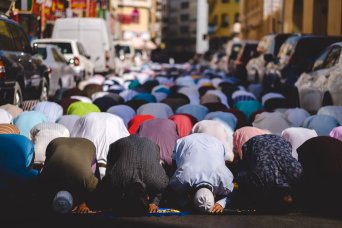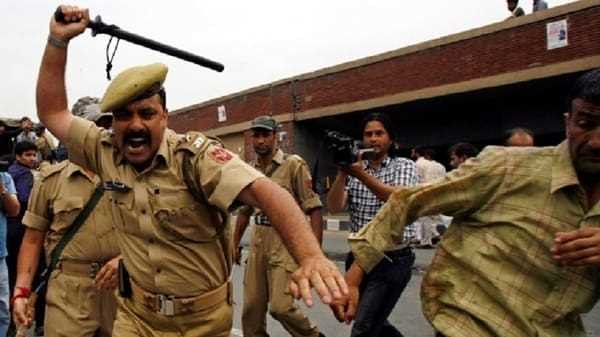- About
- Topics
- Picks
- Audio
- Story
- In-Depth
- Opinion
- News
- Donate
- Signup for our newsletterOur Editors' Best Picks.Send
Read, Debate: Engage.
| topic: | Human Rights |
|---|---|
| located: | India |
| editor: | Hanan Zaffar |
Today, 10 December, is observed as Human Rights Day across the world, commemorating the adoption of the Universal Declaration of Human Rights (UDHR) by the United Nations General Assembly in 1948. The UDHR proclaimed that everyone is entitled to certain absolute rights - irrespective of race, colour, religion, sex, language, political or other opinion, national or social origin, property, birth or other status.
According to the United Nations, even though human rights have become more recognised and more guaranteed across the globe since the adoption of the Universal Declaration of Human Rights, “the promise of the UDHR, of dignity and equality in rights, has been under a sustained assault in recent years.” This is visible in India, where human rights in general, and specifically minorities rights, have recently been under serious threat.
The state - currently ruled by the Hindu Nationalist Bharatiya Janata Party (BJP) and led by Prime Minister Narendra Modi - is accused not only of turning a blind eye towards incidents of violence against minorities, but of using its influence and power to target minorities, specifically Muslims, while also threatening the freedom of expression of people critical of its actions, including the press.
Experts based out of the region accuse the Indian state of not only sheltering the perpetrators in pursuit of appeasing the majority, but also of providing “political patronage” to attackers.
The bulldozing of Muslim houses under the pretext of “demolishing illegal constructions” has been the latest example of targeted persecution by the state. Following communal clashes between Hindus and Muslims in different parts of the country, which were allegedly initiated by the Hindu nationalists, authorities target Muslims by arresting them and demolishing their houses.
In 2019, the autonomy of the Indian-administered Kashmir, which is majority Muslim, was unilaterally revoked by the Indian government following a lockdown and communication blockade of the region. The disputed territory, which has been seeking a resolution of the decades-old conflict, was already witnessing immense human rights violations. However, following the revocation of its autonomy, the attacks on freedom and human rights have only intensified.
The government in 2020 also passed a new citizenship law, which made religion a basis of granting citizenship to people of neighbouring countries - notably excluding Muslims. The bill along with the National Register of Citizenship (NRC) led to the deprivation of citizenship for many Muslims in the country.
Not astonishingly, the United States Commission on International Religious Freedom (USCIRF) has recommended the US government to designate India as a “country of particular concern” for “engaging in and tolerating systematic, ongoing, and egregious violations of religious freedom.”
At the same time, anti-terror laws are being used to target minorities, government critics and journalists, which has led UN member states to question the Indian government at the Universal Periodic Review (UPR) at the United Nations Human Rights Council (UNHRC).
The state is also suppressing the freedom of expression with attacks on its critics and journalists. India has witnessed a consistent decline in its Press Freedom Index since the BJP came into power in 2014. In 2022, the country was ranked at 150 among 180 listed countries in the World Press Freedom Index released by Reporters Without Borders (RSF).
RSF in its report stated, “The violence against journalists, the politically partisan media and the concentration of media ownership all demonstrate that press freedom is in crisis in ‘the world’s largest democracy,’ ruled since 2014 by Prime Minister Narendra Modi, the leader of the Bharatiya Janata Party (BJP) and the embodiment of the Hindu nationalist right.”
Photo by Levi Meir Clancy

